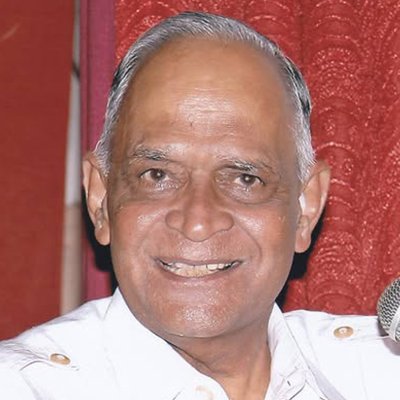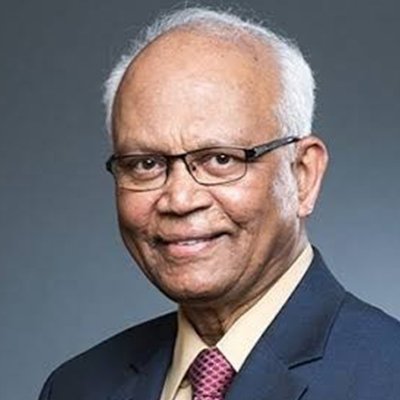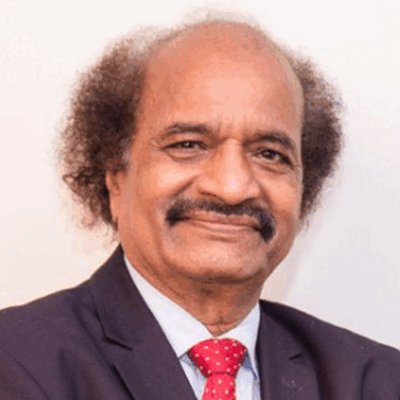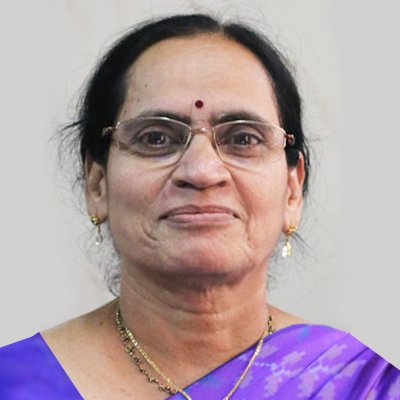SusChemE 3.0 emerges as a premier international convergence of science, engineering, and innovation, where the transformative forces of Green Chemistry and Sustainability Engineering unite to redefine the future. The focal theme of the event is “The Green Shift: Pioneering a Sustainable Chemical Industry,” showcasing how sustainable technologies are revolutionising industries, advancing global progress, and shaping a cleaner, more resilient tomorrow.
Organised by the Institute of Chemical Technology (ICT) in association with the Indian Chemical Society (ICS) , SusChemE 3.0 convenes visionary researchers, pioneering engineers, global policymakers, and industry leaders to catalyse solutions in clean energy, eco-efficient manufacturing, and the circular economy, while also opening new avenues for partnerships, investment, and market growth.
From 9 - 11 September 2026 at the Institute of Chemical Technology, Mumbai, SusChemE 3.0 invites the world to innovate, engage, and accelerate the transition towards a sustainable chemical industry.
The Indian Chemical Society, a premier Scientific Society of India, was founded in 1924, as National Forum for the community of chemists and members of allied disciplines in the country. The driving force behind its establishment was the nationalistic spirit prevailing in India under British rule. J. N. Mukherjee, J.C. Ghosh and S.S. Bhatnagar while carrying out their research work in the University College, London in 1919 for the D.Sc. Degree, took a decision that after coming back to India their endeavor would be to establish a Chemical Society like the Chemical Society of London. Their cherished dream was transformed into a reality with active cooperation of many of the leading personalities in the country, and the Indian Chemical Society was founded on May 9, 1924, as a registered Society, with Sir Prafulla Chandra Ray, the doyen of Indian Chemists, as the first President. Many of the distinguished personalities in the field of Chemical Science of that time in India took active interest in nurturing the new born Society.
Established on October 1, 1933 as University Department of Chemical Technology (popularly called UDCT) of the University of Bombay (now Mumbai), with the noble intention of advancing India's knowledge reserves in chemical science and technology, the Institute has grown to become a premier (deemed) university devoted to education, training, research and industrial collaboration in chemical engineering, chemical technology, applied chemistry, pharmacy, biotechnology and bio-processing. The then UDCT grew in stature over the years and was granted partial autonomy by the University of Mumbai in 1985, which was taken to the next echelon under the concept of autonomy propagated by the University Grants Commission (UGC). Due to its size and spread of activities, it was converted into University Institute of Chemical Technology (UICT) on 26th January, 2002 and under the TEQIP of the World Bank it was granted full autonomy in 2004. Upon strong recommendation of the UGC through a peer review process, the autonomous institute status was finally converted in to a Deemed-to-be-University by the Ministry of Human Resource Development (MHRD), Govt. of India, on 12 September 2008. Seven convocations have so far taken place in 2012, 2013, 2014, 2015 and 2016, 2017 and 2018.
Based on its stellar performance over the years, the Government of Maharashtra granted it the Elite Status and Centre of Excellence in the State Assembly on April 20, 2012. This is a singular distinction accorded to any institute in the entire country and speaks volumes about the achievements of the ICT.
In November 2017, National Assessment and Accreditation Council (NAAC) Committee visited ICT and graded with A++ CGPA of 3.77 out of 4. ICT has been ranked amongst top ten Engineering Institutes of India and 19th amongst the top universities if the country. It is also recognized at rank 4 amongst the Pharmacy Institutes. In the BRCS QS Universities ranking 2018, ICT ranked at 118; whereas in 2019, ICT is 115 among all BRICS.
On March 2018, ICT for the first times crossed the confines of Maharashtra when the institute inaugurated the "ICT Mumbai Indian Oil Odisha Campus" at Bhubaneswar on 18th March 2018, at the hands of President of India, Honorable Shri Ram Nath Kovind, in the august presence of Honorable Shri S.C Samir, Governor of Odisha, Honorable Shri Dharmendra Pradhan, Union Minister of Petroleum and Natural gas, Skill Development and Entrepreneurship and distinguished bureaucrats, academicians, industry stalwarts and citizens. The Institute has signed MOU with IIT Kharagpur for collaborating in various research activities.
May 4th 2018 was another glorious day for ICT, when ICT officially established its second campus outside Mumbai. The foundation stone of Marathwada Off-campus Centre of ICT was laid at the hands of Chief Minister of Maharashtra Shri. Devendra Fadnavis among other dignitaries. A land of 203 acres has been allocated at Siraswadi near Jalna to the Institute.
ICT's contribution to wealth creation must be one of the best amongst the branded institutes. The institute has been developing technologies which are consistently being commercialized. An illustration to such effect is technology for hydrogen production by water splitting. The technology has been successfully scaled up to pilot scale and transferred for commercial deployment to ONGC. The technology has been granted patents in Korea, Japan, USA, Canada and China.
A 1 million Litre/Day Demonstration plant based on ICT's Sewage Processing Technology was inaugurated in September 2018 at New Delhi by Dr. Harsh Vardhan, Hon'ble Union Minister of Science & Technology, Environment Forest and Climate Change and Earth Sciences in presence of Shri. Anil Baijal, Lt. Governor of Delhi and Dr. Renu Swarup, Secretary, Dept. of Biotechnology. The plant is based on a combinations of ICT's technologies namely CCR, CTL and Rapid AD technology and is called DBT-ICT Nullah/ River cleaning technology. The plant shall process e at Barapullah Nallah to generate clean water and compressed Biogas (CBG).
ICT's successfully demonstrated and patented DBT-ICT 2G-Ethanol technology has been taken up by major Oil Marketing Companies (OMCs) such as HPCL for establishing commercial scale plants. In July 2018, ICT signed agreements with LSTK bidders, a step taking ICT closer to its goal of commercializing the technology. ICT's Municipal Solid Waste and Liquid Waste (MSW/MLW) technology have been taken by BPCL for putting up a 1ton/day pilot plant at BPCL's Chembur colony in Mumbai.
Technologies for dehydration of vegetables to produce nutritious drinking vegetables (10 ton fresh vegetables/month) have been commercialised. Retort processing to make ready- to-eat traditional Indian curries etc (6-8 tons/month) and technology for making fruit wine (24kl/year) have been commercialized. Start-ups have been established based on the mentioned technologies.
Our endeavours, extending well beyond the confines of the classroom, will aim to enhance public welfare and our attempts to dissipate knowledge will spread to a greater multi- and cross-disciplinary platform to conduct research, discovery, technology development, service to industry and entrepreneurship, in consonance with India's aspirations to be a welfare state
MM Activ Sci-Tech Communications is India’s leading organization in Tech Events, Branding, CorpComm, and B2B Media, celebrating 25 years of Purpose, Partnerships, and Progress. Over the last two decades, MM Activ has successfully curated more than 200 national and international B2B events, innovating across India’s growth sectors, including IT & Electronics, Biotechnology, Semiconductor, Quantum, Nanotechnology, AgriTech, ChemTech, Aerospace & Defence, Public Transport, Renewable Energy, Higher Education, Skills, R&D, Startups, and the UN SDGs. The organization effectively interlinks industry, academia, research, government, and international stakeholders to drive impactful collaborations and innovation.
In addition to event curation, MM Activ is a publisher of specialized print and digital media in Biotech, Medtech, Food, and Agritech, with operations spanning India and Singapore. Its group company operates the Integrated CIDCO Exhibition & Convention Centre (CECC) in Vashi, Mumbai, cementing its leadership in the MICE industry.
For more details, please log on to: www.mmactiv.com

FREng, FRS, FNA, FASc, FNASc, FTWAS, C Chem, FRIC (U.K.), C. Eng., FIChE (U.K.), FIIChE, FICS, FBRS
Former Director, Institute of Chemical Technology, Mumbai
Padma Vibhushan Awardee

FRS, FNA, FTWAS, FASC, FNAE, FNASE, FCHEME (UK), FIICHE, FMASC, FIICHE
Former Chancellor, ICT Mumbai
Former Director General, CSIR & Secretary, DSIR, GOI
Padma Vibhushan Awardee

NAE (US),FNAI (US), FTWAS, FNA, FASc, FNASc, FNAE, FISTE, FRSC (UK), ChE, FIChemE (UK), FIIChE, FICS, FMASc, FIIChE
Bhatnagar Fellow (CSIR)
National Science Chair (GoI)
Emeritus Professor of Eminence & Former Vice Chancellor, Institute of Chemical Technology, Mumbai
Padma Shri Awardee

FNA, FTWAS, FNASc, FNAE, FRSC
Dr. B. P. Godrej Distinguished Professor of Green Chemistry and Sustainability Engineering, ICT Mumbai
Former Director, CSIR-IICT, Hyderabad

Department of Chemical Engineering, Institute of Chemical Technology, Mumbai